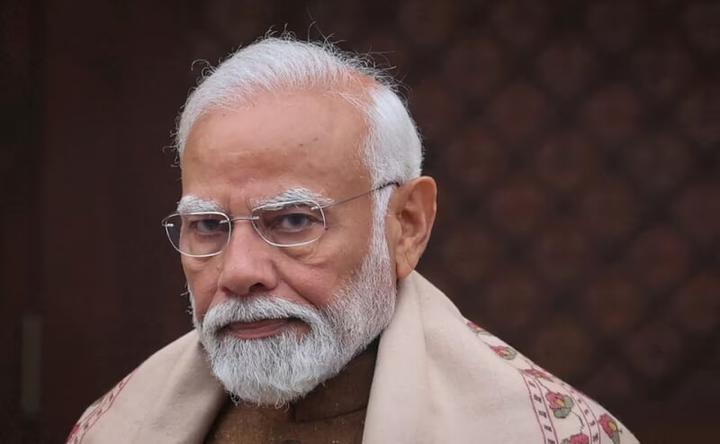Author: Prof. Engr. Zamir Ahmed Awan, Founding Chair GSRRA, Sinologist, Diplomat, Editor, Analyst, Consultant, Advisor, and Non-Resident Fellow of CCG. (E-mail: awanzamir@yahoo.com).
Prime Minister Narendra Modi's decision to skip the Shanghai Cooperation Organisation (SCO) Summit in Kazakhstan reflects a strategic recalibration in India's foreign policy priorities. While External Affairs Minister S. Jaishankar represented India, the absence of PM Modi signals a nuanced approach shaped by geopolitical realities and domestic considerations.
India's stance towards the SCO, particularly under the dominant influence of China and Russia, has become increasingly cautious. The grouping, initially aimed at fostering Eurasian security and economic cooperation, now navigates complex dynamics exacerbated by regional tensions and global power plays. Modi's absence highlights India's reservations about China's assertive stance on border issues, compounded by Russia's evolving alignment with Beijing amid Western sanctions post-Ukraine.
India's strategic alignment with the United States and European countries underscores its evolving foreign policy calculus. Amid growing Indo-Pacific dynamics and competition with China, India seeks to leverage partnerships that align closely with its national interests and strategic goals. Modi's recent participation in the G7 Outreach in Italy and upcoming visit to Moscow underscore India's efforts to maintain a balanced approach amidst shifting global alliances.
The SCO, despite its potential economic benefits and security cooperation frameworks, poses challenges for India due to its rivalries within the group and divergent strategic priorities. Modi's absence may be interpreted as a diplomatic signal of India's cautious approach towards engagements where its core interests are not fully aligned.
Prime Minister Narendra Modi's absence from the Shanghai Cooperation Organisation (SCO) Summit in 2024 carries significant implications both regionally and globally, affecting bilateral relations and multilateral dynamics. The decision underscores India's strategic repositioning and its prioritization of engagements that align more closely with its national interests and strategic partnerships.
Bilaterally, Modi's non-participation reflects India's cautious approach towards China and Russia, the dominant forces within the SCO. Tensions with China over border disputes, exacerbated by the Galwan Valley clash in 2020, have strained relations, making high-level engagements challenging. Similarly, Russia's alignment with China amid Western sanctions following the Ukraine conflict has reshaped geopolitical alliances in Eurasia, influencing India's calculus in regional groupings like the SCO.
Multilaterally, Modi's absence may impact India's influence and standing within the SCO framework. As a full member since 2017, India's participation was initially seen as pivotal for balancing the SCO's dynamics and fostering inclusive regional cooperation. However, by choosing to send the External Affairs Minister instead, India may signal a strategic distancing from SCO initiatives that do not directly advance its geopolitical and economic interests.
Regionally, Modi's decision could potentially strain relations with SCO members, particularly China and Russia, who view India's participation as integral to balancing regional power dynamics. India's absence at the summit may prompt recalibrations in regional alliances and influence perceptions of India's commitment to Eurasian security and economic cooperation.
Globally, the West, particularly the United States and its allies, may interpret Modi's absence as a strategic maneuver aimed at reinforcing India's alignment with Western democracies amidst growing Indo-Pacific tensions. India's recent engagements with the G7 and forthcoming visit to Moscow suggest a nuanced approach to global partnerships, emphasizing strategic autonomy and diversified alliances.
As a matter of fact, PM Modi is focused on material gains, if he is convinced that Western alignment can be more beneficial, he might quit from SCO. On the other hand, his role in BRICS is also negative and always opposing any initiative taken by the member states. Like, de-dollarization, or alternate currency was always opposed by India. India also opposed expansion of BRICS membership. As a matter of fact, India was protecting American interests while sitting BRICS or SCO. His role was always pro-west and compromising on regional interests. India has no friend at its borders, and keeping hostile relations with all of its neighbors, like China, Pakistan, Nepal, Bangladesh, Myanmar, Sri Lanka and Maldives, all have various degree of disputes and difference with India and confrontation.
Simply, India is miss-fit in this region and regional alliances. It is better India should quite membership of BRICS & SCO and may remain in Quad, AUKUS, Indo-Pacific Alliance, and keep relations only with America, Australia, Japan, Philippine and UK. Indian hypocrisy cannot survive forever, sooner or later, once every one understand India, may keep distance from it. It is better for India as well as for the whole region that India decide once for all and should not put feet on two different boats sailing into opposite directions.
However, SCO and BRICS will grow and expand further, and may reach to a stage where it can replace some of the functions of the UN. Bright future for BRICS and SCO. Bye Bye India!
(ASIA PACIFIC DAILY)
